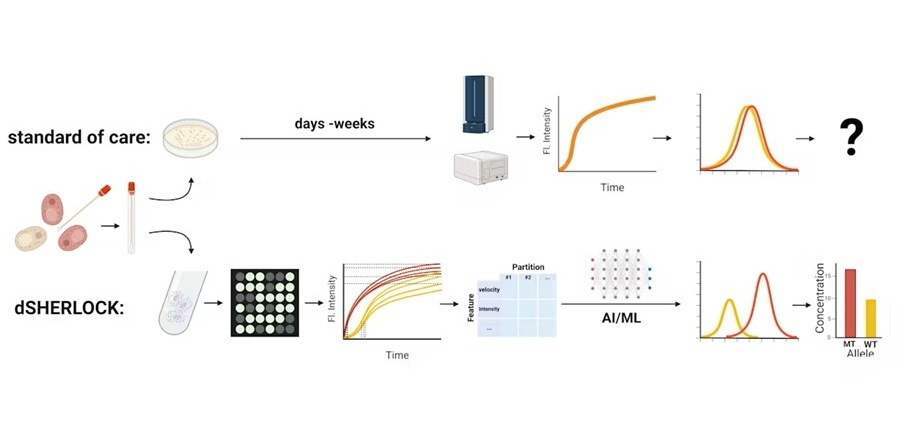Molecular Assay Detects Bacterial Toxin Genes
By LabMedica International staff writers
Posted on 13 Dec 2010
A rapid molecular test specifically identifies the bacteria Clostridium difficile within 24 hours.Posted on 13 Dec 2010
The assay is very sensitive and detects the large clostridial cytotoxins of C. difficile, the toxin A gene (tcdA) in addition to the toxin B gene (tcdB) and has some advantages over other tests.
A study was conducted at University of Utah School of Medicine, (Salt Lake City, UT, USA; medicine.utah.edu) to compare the abilities of two different assays to recognize various C. difficile-strain types and toxin classes and to determine cross reactivity with other Clostridium species. The study involved 40 clinical isolates from 20 species of C. difficile and non–C. difficile samples from stool samples.
The two assay tested were the illumigene C. difficile assay (Meridian Biosciences, Cincinnati, OH, USA), which targets the highly conserved 5′ region of tcdA, using loop-mediated isothermal amplification (LAMP), and tcdB; and the GeneOhm C. difficile assay (BD Diagnostics, Franklin Lakes, NJ, USA). The two assays were 100% concordant in identifying the B+ strains of C. difficile. The illumigene assay was able to detect toxin A+B+ strains of toxinotypes 0 (16 strains), III (6 strains), V (6 strains), XII (1 strain), and IX/XXIII (1 strain). It also amplified A–B+ strains of toxinotypes VIII (three strains) and X (one strain). As a negative control, neither assay was able to amplify 34 non–C difficile, other Clostridium species isolates, including three of the closely related Clostridium sordelii.
Brianne Couturier, PhD, from the University of Utah, preferred the illumigene assay and said, "The BD GeneOhm has the same license mechanism; however, you have to make up the master mix separately. If you do not make full runs, you are wasting reagent, whereas with the illumigene assay you do not waste reagents." The workflow is improved and technician time is saved. The results of the study were presented at the Annual Meeting of the Association for Molecular Pathology, November 17-20, 2010, held in San Jose, CA, USA.
Related Links:
University of Utah School of Medicine
Meridian Biosciences
BD Diagnostics













